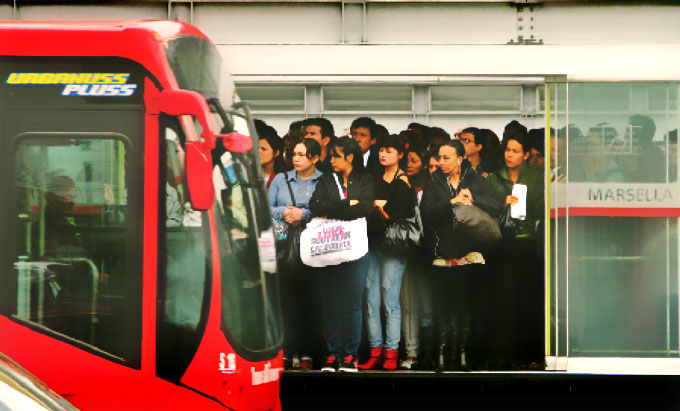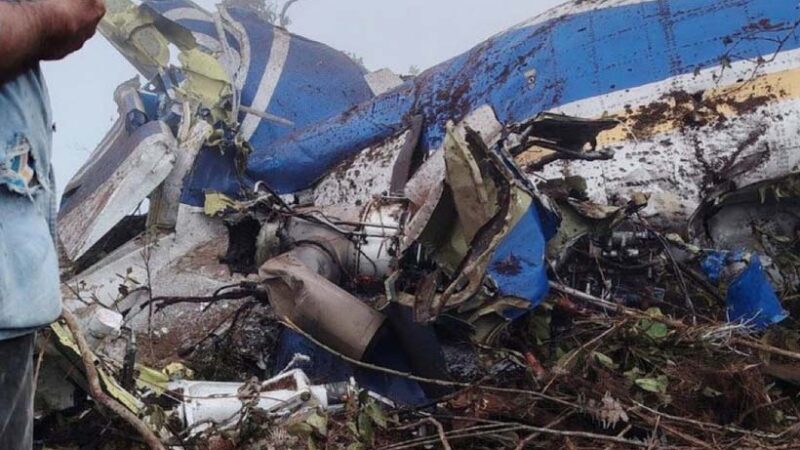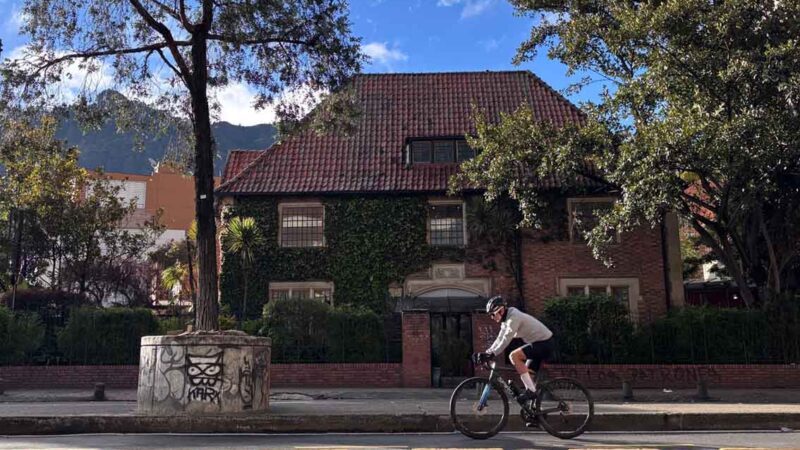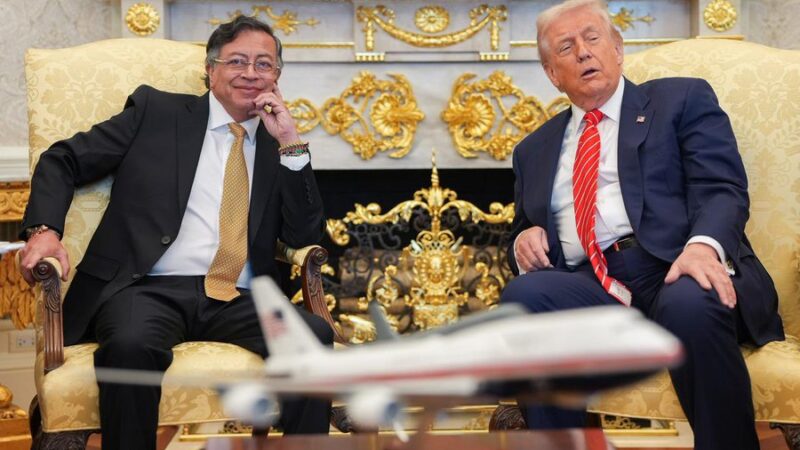
Bogotá is bracing for a wave of protests that threaten to paralyze the capital this week, as drivers from across multiple sectors rally against Mayor Carlos Fernando Galán’s handling of mobility and public services.
The demonstration, set for September 17, comes less than a week after the first train of the long-awaited Bogotá Metro arrived in the city to begin testing. While officials hailed the milestone as a historic step toward modernizing the capital’s transport system, discontent has been growing among motorists who accuse the mayor’s administration of neglect, broken promises, and abusive policies.
The protest was announced by city council member Julián Forero, known locally as “Fuchi,” and has been amplified through social media. Motorcyclists, taxi drivers, digital platform operators, cargo and funeral service drivers, as well as private vehicle owners, have pledged to participate. Forero has called the protest “the largest mobilization in Bogotá’s history,” framing it as more than a traffic disruption but as a demand to be heard by city authorities.
“The call is made under the slogan: ‘Because Bogotá has no mayor,’” Forero wrote in a statement on the Bogotá Council’s website. He argued that the demonstration aims to “transform the noise of traffic into a voice that cannot be ignored” and to force the mayor’s office into genuine dialogue.
Organizers have tied the protest not only to mobility issues but also to broader frustrations, including insecurity and allegations of corruption. In a video message, union leaders said they are united by a sense of abandonment and mistreatment from city authorities.
The statement outlines 18 grievances fueling the demonstration. Among them are allegations that public funds are being lost to corruption in mobility contracts, that traffic fines serve as a “cash register against the people,” and that towing services and impound lots have become a “mafia business.” Protesters also complain about worsening traffic congestion, deteriorating roads, and abandoned public works.
Security is another key concern, with drivers citing rising thefts of cars and belongings in parking areas, alongside widespread public unease about assaults on city streets. Women, the statement claims, increasingly avoid public transport due to safety fears, while frequent breakdowns on the TransMilenio bus rapid transit system continue to disrupt daily commutes without contingency plans in place.
The grievances also include criticism of the traffic police and photo-detection cameras, which drivers say operate without oversight and often subject motorists to abuse. Forero accuses the city’s Secretariat of Mobility of using “arbitrary procedures” that corner drivers into paying fines. He further criticized Mayor Galán for failing to sign a decree that would guarantee drivers a voice in mobility decision-making.
The mobilization is expected to cause significant disruptions in Bogotá, a city already notorious for its traffic jams. Officials have not yet disclosed their contingency plans, but previous protests have led to severe congestion across major arteries. The administration has defended its record, pointing to progress on infrastructure projects and security operations, though many of the grievances reflect longstanding urban problems that predate Galán’s administration.
The timing of the protest adds to the political pressure on Galán, who has sought to frame the Metro’s arrival as proof of progress. Yet the mayor faces mounting criticism that his government is more focused on enforcement through fines and taxes than on improving daily life for residents.
Forero and other protest leaders say the movement goes beyond opposition to a single policy. “This is not just about mobility. It is about a city where insecurity, corruption, and poor management affect us all,” he said.
With Bogotá’s drivers preparing for what could be one of the largest demonstrations in recent years, the city faces a test not only of its traffic management but also of its leadership’s ability to navigate growing discontent beginning with noise levels from bars in residential neighborhoods and garbage collection.
Share this story
The City Paper Staff
View all posts by The City Paper Staff








